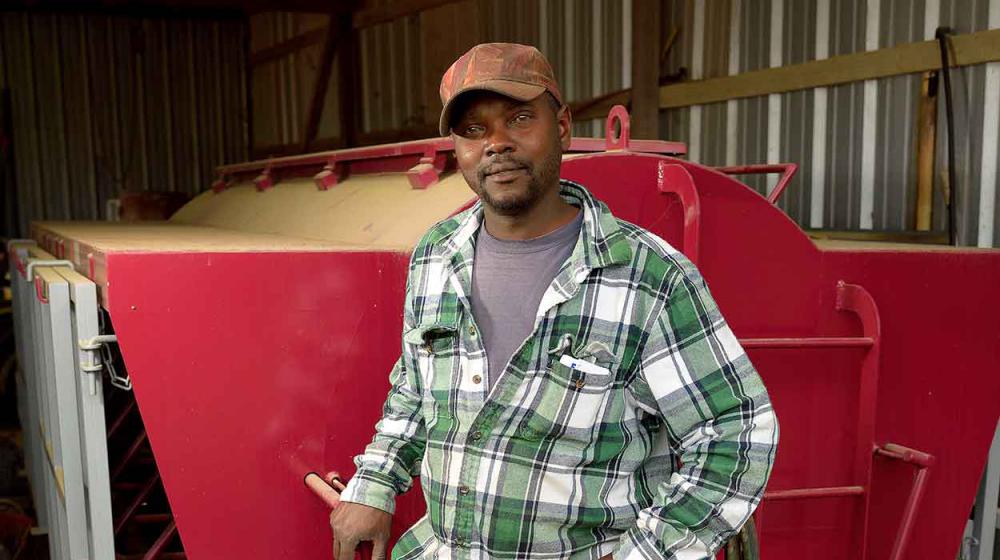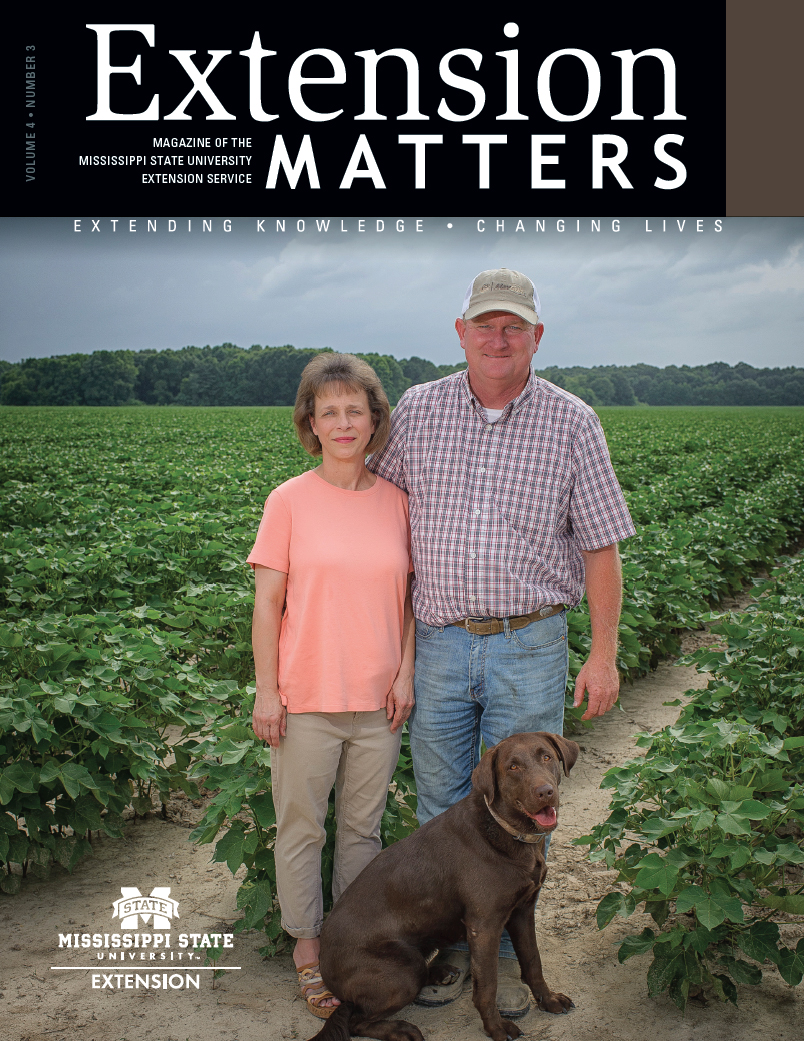Path to Progress

Greg Chambers works with the Mississippi State University Extension Service in Prentiss County.
Cattle producer innovates with Extension support
Story by Leah Barbour • Photos by Kevin Hudson
Greg Chambers is one Mississippi producer who’s focused on innovating. Whether he’s growing soybeans and wheat on his Prentiss County property or raising cattle and goats on other acres, Chambers is always looking for a better, more efficient way of doing things.
When he finds a moment to wipe his brow and sit down in the storm house that doubles as his workshop, he’s happy to share his progress, as well as his goals for the future. With more than 200 acres and close to 30 head of cattle, Chambers continues to look for ways to consolidate, then grow.
“I grow all my own feed for my livestock—soybeans, hay, whole corn, and sometimes I’ll even bale wheat straw. I grow a lot of millets, too,” he reflects. “I’ve worked with Extension—I had something with the roots going on in my soybeans, so I did a soil sample, and I had nematodes on the roots. I had gotten a different type of plant, and it did well in one field and not in others. But Extension shows you that, if you run into a problem, you have someone you can go and ask.”
Chambers worked with Extension to choose his daughter’s first nine head of cattle when she got into beef cattle production. He worked with Dalton Garner, who was then Extension’s agricultural agent in Prentiss County. That became the major step to getting the whole family involved, Chambers remembers.
He wanted his daughter, Hope, to learn about taking care of cattle, and Extension’s 4-H youth development program was the perfect place to do it, Chambers says. Skip Glidewell, the current Extension agent in Prentiss County, worked with the Farm Service Agency’s Booneville office to get Hope an FSA youth loan.
“Extension makes sure the child has access to forage, and we offer our Extension specialist’s services if they need it,” Glidewell explains. “So the Extension Service helps with advice on cattle production, but FSA provides the loan to get the cattle.”
Taking care of cattle taught Hope respect and empathy, Chambers emphasizes.
“When a kid has to deal with an animal that can’t talk, she’s going to have to figure out what it wants and what it needs. Cattle can’t talk, so you have to feed them, and you have to keep them watered. My daughter learned responsibility from the cattle, and the other kids noticed,” he says. “The dam broke, and other kids from the church started getting into 4-H, too.”
Along with providing information to keep Chambers’s row-crop and forage operations profitable, Glidewell has also offered analysis and input on Chambers’s livestock feed, based on composition tests run by Extension experts.
“I need to know what I’m giving my own animals, even when I grow all my own feed and grind it up. You need someone to tell you about the proteins,” Chambers says.


